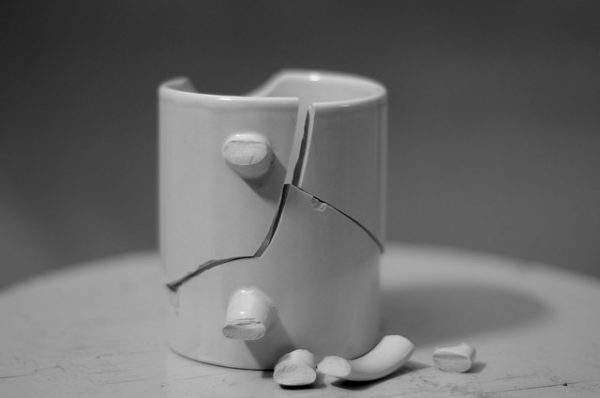The One-Bad-Break Test

Photo credit: Mohamed Baseeth, CC BY 2.0.
One of the reasons everyday tasks like “buying health insurance” or “putting money aside for retirement” are so anxiety-inducing, at least for me, is because there’s always this question in the back of my mind about whether the thing I’m investing in is going to help me when I need it.
Yes, I can read about deductibles and 6 percent returns. I can do the research. But I’m not sure that anything I do is going to be useful if/when things get bad—whether we’re considering an unexpected illness or an economic slowdown.
This isn’t just me being unnecessarily worried. At NYMag’s Science of Us, Jesse Singal explains his theory that “one bad break” can sink us all:
The one-bad-break test states simply that you can tell a lot about a society by what happens when its economically vulnerable members encounter a majorly bad break. That bad break can be anything — an injury, the sudden need to take in and care for an ailing relative, an unexpected layoff — and the effects of a single bad break vary tremendously depending on who you are, where you live, and what resources you have access to. (Rich people hit bad breaks too, of course, but they generally have far more capacity to handle them than everyone else, so I’m restricting this discussion to those who lack those resources.)
In societies that function well, there are various safety nets in place to prevent a bad break from leading to a tailspin for particularly vulnerable victims. Compared to many other rich nations, the U.S. is not such a society — all too often, when vulnerable Americans encounter a bad break, there’s nothing underneath them to stop their slide. Instead, devastation follows, sometimes in the form of bankruptcy and addiction and death.
As Singal explains, the one-bad-break test doesn’t just affect people living paycheck to paycheck, and it doesn’t just affect the people who, as you might remember from the famous study earlier this year, couldn’t come up with $400 in an emergency.
The one-bad-break test also affects people with savings accounts. People with retirement accounts. People who prepared and planned. People who had good jobs.
Singal also notes that you don’t even have to be the person who experiences the bad break for it to devastate your finances; when an ill parent or an addicted sibling needs care, for example, that could pull you out of the job market, pull your savings out of their accounts, and so on.
So yeah. One bad break could be all it takes.
What do we do, now that we know this? I don’t know. Keep doing our best with what we have, I guess. Save when we can, build our networks and our careers if we can. Pay attention to politics, especially at the local and state level, and vote for people who want to strengthen the safety net. Watch out for friends and family members and provide proactive help (which is much easier said than done, I know).
But also: assume that our bad break will come, and start thinking about what we’ll do when it happens.
Support The Billfold
The Billfold continues to exist thanks to support from our readers. Help us continue to do our work by making a monthly pledge on Patreon or a one-time-only contribution through PayPal.
Comments